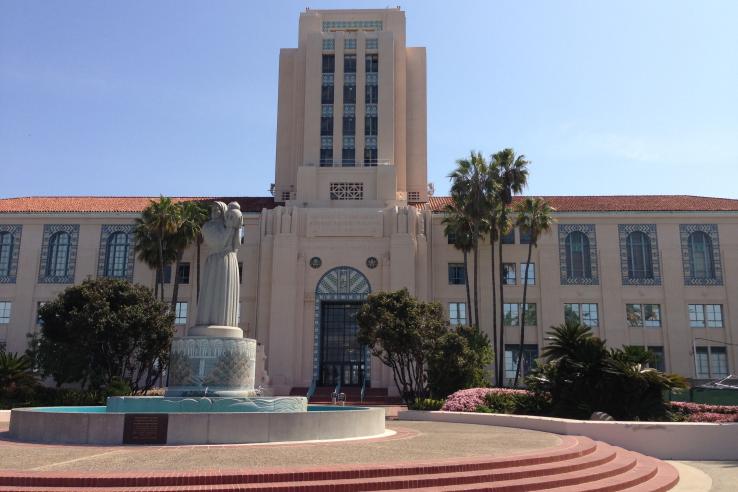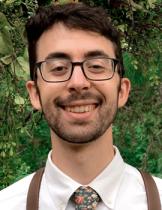
LEVER Partner Spotlight: Ricardo Basurto-Dávila on the County of San Diego’s research priorities and culture of learning

In this Partner Spotlight series, J-PAL North America and Results for America highlight the government leaders and decision makers who are harnessing data, evaluation, and evidence to advance economic mobility via our Leveraging Evaluation and Evidence for Equitable Recovery (LEVER) programming.
This piece features the work of Ricardo Basurto-Dávila, the Chief Evaluation Officer in the County of San Diego’s Office of Evaluation, Performance and Analytics. In this post, we share how Ricardo is using resources from LEVER to advance the committed culture of learning and improvement in San Diego.
Can you describe your role in the County of San Diego and how it connects to data and evidence generation and use?
I'm the chief evaluation officer for the County of San Diego. I lead the Office of Evaluation, Performance, and Analytics, which provides leadership, coordination, and capacity building for the County in our efforts to build a culture of learning and evidence-based policy making.
What have been some of your biggest priorities in that role?
A main one is our strategic research plan, which we have a mandate to update annually and execute on. The one from this year identifies six initial research and evaluation projects for our office. It also has a learning agenda with 33 high-priority questions that we developed by engaging with about 40 departments and agencies across the county to build a shared vision that will guide our work in years to come.
We're additionally going to develop an inventory of all programs in the county and the level of evidence underpinning them. That will help us to identify which programs are aligned to our learning agenda and which programs may benefit from more evidence regarding their effectiveness or efficiency, which can shape future research priorities.
How did engaging with the two-part LEVER workshop series on Evidence and Evaluation Foundations shape your work?
I was actually only there “live” for workshop two. I was unable to attend the first one, but I worked through Results for America’s self-assessment tool from that workshop on my own. It helped me realize that we’re in a pretty good spot in San Diego and have a lot of foundational pieces in place. But it also showed me where there’s more for us to do and how we specifically can continue working to reach the ideal state.
After completing that assessment, I became even more interested in engaging with LEVER. I made sure that I’d be able to attend the second workshop precisely because the self-assessment showed me there was real value.
Do you have any advice for other government leaders seeking to do this kind of work?
One recommendation is to start by clarifying ideas and building consensus around what your goals are and what you’re trying to achieve. Most of us in government really want things to work, and we want to help improve the quality of life for the people in our communities. It’s important to show that data and evaluation are tools to remove uncertainty and provide more information to inform critical decisions.
Another recommendation is to think about the full picture of how this work will happen. It’s critical that research and evaluation efforts align with a government’s strategic priorities and come directly from department and agency staff. It's not easy to do something like this piecemeal or in a silo. You need to be very deliberate about putting the structure in place to have a team that will have capacity and expertise, collaborate with staff and agencies who can guide your priorities, and reach the people who will be making decisions.
I’d also recommend the self-assessment tools from the LEVER workshops for any governments interested in advancing their capacity and culture of evaluation and evidence—they really helped us identify areas of strength and specific things to pursue next.
Would you recommend LEVER programming to other government leaders who are interested in more effectively utilizing data and evidence in their work?
Absolutely. We had a peer convening a few weeks ago with some other jurisdictions, and I was struck by the variety and range of capacities and areas of focus. LEVER hasn’t tried to get us to just fit one mold. J-PAL North America and Results For America are working with everyone to assess where we are, then supporting us the way we each need to move forward. That combination of flexibility and expertise is the critical thing, and exactly what I was hoping for.




